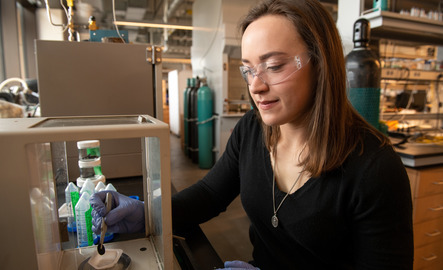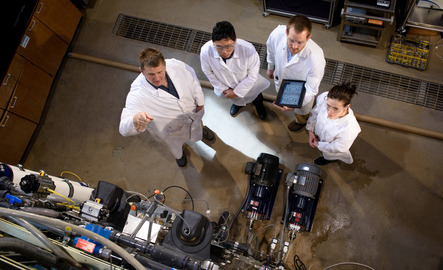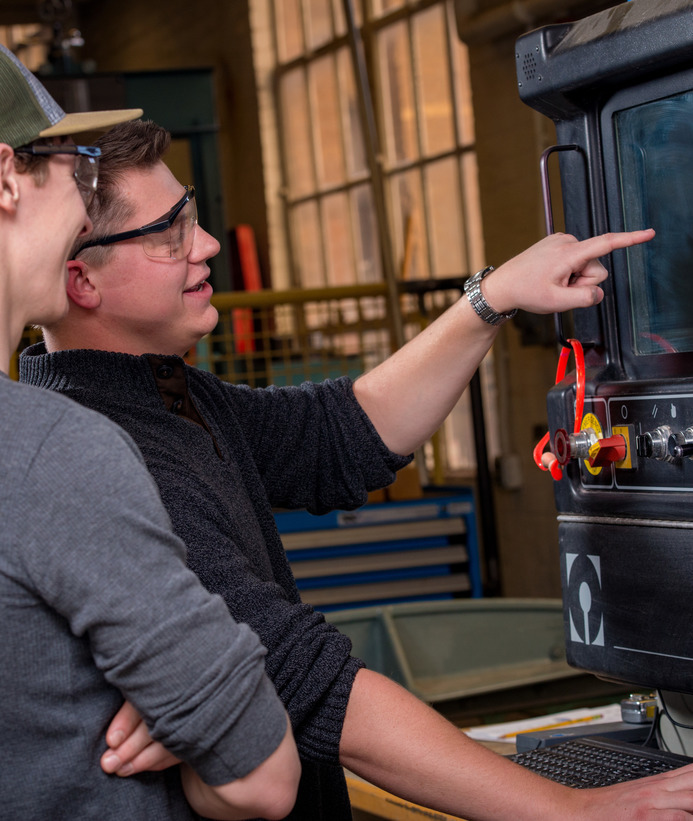About the Process Control and Instrumentation Minor
Process control and instrumentation is all about designing and operating control systems that meet process, system and product specifications, achieve safety requirements and maximize economic benefits. Process control engineers optimize processes and implement quality control systems in the manufacturing industry. They also design, test and oversee the implementation of new processes.

The process control minor is an 18-credit-hour program consisting of five required
process control courses and your choice of two or more electives. This minor emphasizes
the importance of hands-on learning. Many of the course offerings reflect this emphasis.
Here are just a few examples:
- Practical Fundamentals of Process Control: This course introduces students to sensors, valves, actuators, the assembly of process control components and provides hands-on practical experience.
- Applying Simulation to Dynamic Processes: This course introduces students to dynamic simulation software for controlling individual chemical engineering processes.
- Controlling Process Systems: This course is the capstone process control course. Students will design process control for systems of linked processes, including sensing and transmission, final control elements and controllers.

Students must be enrolled in an undergraduate degree program to pursue a minor in
process control.
This ensures that they have access to the foundational coursework and academic resources
necessary to successfully complete the specialized requirements of the minor. Enrollment
in a degree program also facilitates proper academic advising and integration of the
minor into the student’s overall academic plan.

What Can You Do With a Process Control and Instrumentation Minor?
With a minor in process control and instrumentation, you’ll unlock exciting career paths in automation, manufacturing, energy and more. Students complete this program equipped to design, optimize and control complex systems. Making our graduates in high demand across many cutting-edge industries.
- Process Control Engineer
- Materials Engineer
- Control Engineer
- Senior Process Engineer
- Asset Engineering Manager
- Plant Unit Manager
- Georgia-Pacific LLC
- Chevron Phillips Chemical Company
- Genesis Alkali
- Bayer Crop Science
- Solvay Specialty Polymers
- J.R. Simplot Company
- Amogy
- Montauk Renewables, Inc.
- FMC Corporation
- Tronox
Yes! Adding this minor boosts your job prospects by building in-demand skills in automation, system optimization and industrial control. It opens doors in a variety of industries and helps you stand out to employers in this competitive market.
No, you don’t need to major in engineering to benefit from this minor. Students in science, technology or related fields can also gain valuable skills in automation and control systems that enhance career options in various technical industries. Talk with your advisor to see how this minor can support your goals after graduation.
“Through my time at UW, I have found that the process control and instrumentation minor is a ticket to success and much more! This program has enriched me with an extra layer of understanding when it comes to chemical engineering and has given me an edge over most other engineering students. The progress I have made thus far in my classes and at internships can be directly attributed to what I have learned from the minor. I highly recommend the process control and instrumentation minor to aspiring engineering undergraduates.”
- Raymond Nowak, Chemical Engineering Undergraduate


